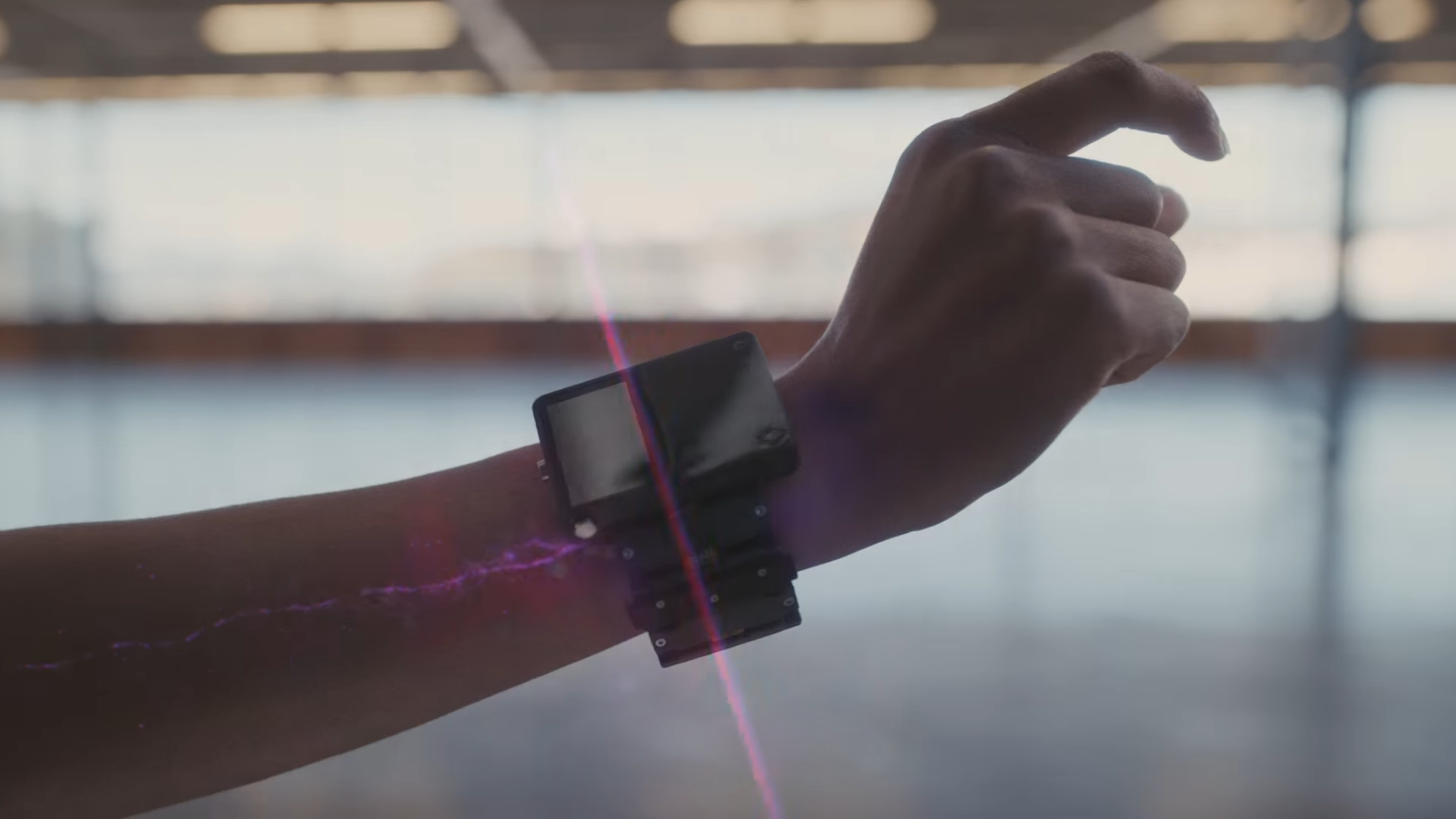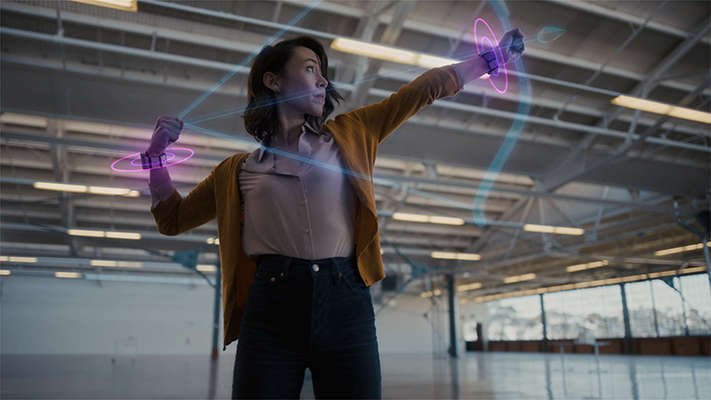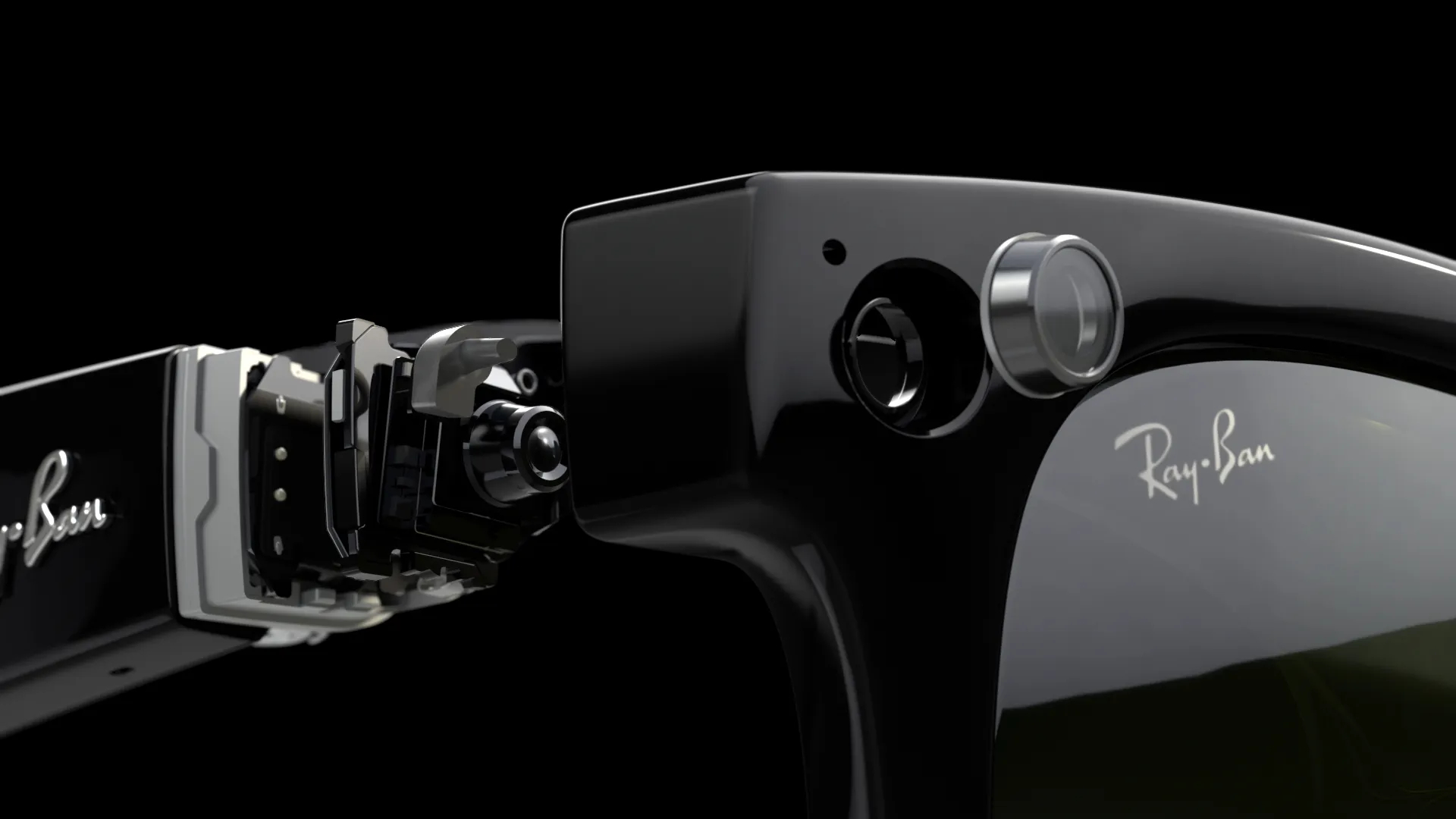This Meta Connect reveal could change AR and gaming forever — and it's not a VR headset or smart glasses
Meta's neural wristband could revolutionize tech with just a flick of your wrist — literally

Sign up to receive The Snapshot, a free special dispatch from Laptop Mag, in your inbox.
You are now subscribed
Your newsletter sign-up was successful
Meta Connect 2024 takes place later this month and we're in for a treat if the latest AR and VR rumors surrounding what's in store for us hold true. However, while a new Meta Quest 3s VR headset or a glimpse at the company's long-term Orion AR smart glasses goals might be the first things that spring to mind, the most impactful reveal at Meta's showcase could be something else entirely: Neural wristbands.
Wristbands might not sound exciting, but Meta's high-tech straps could have an incredible impact on how we use our daily tech. While their primary purpose is said to offer a discrete and accurate way of tracking hand gesture inputs for future smart glasses, they also have the wider potential to completely upturn how we interact with our favorite devices — to the extent that it could spell the end for physical controllers, mice, and keyboards as we know them.
Neural wristbands: Palm reading peripherals
What are neural wristbands? At their core, they're a device that can allow for superior hand tracking that doesn't rely on cameras or sensors.
Instead, Meta's wristbands can non-invasively interpret the minute electrical motor nerve signals that stretch from your brain to your hands using a process called Electromyography (EMG). Mind reading, essentially. Except for your wrists.
The wristbands' ability to translate these signals means that you'll be able to control devices using nothing more than the movement of your hands and fingers.
More impressively, the sensors within Meta's neural wristbands are powerful enough to interpret even the most subtle of movements and react to them almost instantaneously, leading to faster, more intuitive interactions.
High-tech hokum, or the real deal?
That might all sound like futuristic hokum, but Meta has been quite open about its work on neural wristbands, offering plenty of insight and footage of the project throughout its development. Remarkably, it's not just plausible, it's happening.
Sign up to receive The Snapshot, a free special dispatch from Laptop Mag, in your inbox.
Meta's neural interface goals took flight after acquiring CTRL-Labs in 2019. The New York-based startup had been designing its own Electromyography wristbands for finger tracking, and Meta's takeover of this tech has brought the initial concept from strength to strength ever since.
In a 2021 blog post by Meta's (Facebook at the time) Spatial Labs team, the company shared its 10-year vision of the next era of human-computer interaction, with the same neural wristbands highlighted as one of the company's key prospects moving forward.
In a follow-up post, Spatial Labs would reveal an early EMG demo featuring a prototype of its neural wristband, with which the wearer used simple hand gestures to control and manipulate objects in VR space and even effortlessly pen a message using typing gestures without a physical keyboard being present.
Work continued on this prototype and in October 2022, Meta CEO Mark Zuckerberg offered not only an updated look at the project but footage of the wristband in action.
The video breaks down how the neural wristband works and also shows users controlling a simple Temple Run-style game using subtle hand movements, it even includes a visual mockup of how it could be used to control the holographic UI of a pair of AR smart glasses — similar to what we expect to see in Meta's third-generation smart glasses and its Orion AR glasses.
Regardless of how out these magical motor nerve-measuring wristbands may sound, Meta has repeatedly shown them to not only be real but a genuinely viable method of control and an elevation of the human-computer interface.
An end to controllers? Meta's neural interface could stretch to Xbox, PlayStation, and more
In June, Mark Zuckerberg appeared on the Kallaway YouTube channel where he would talk about Meta's neural interface wristband once more. "I think the neural wristband is going to be a pretty big deal," he replied after being asked what Meta's next 'frame breaking' product will be.
Interestingly, Zuckerberg suggests that the wristband could have some far-stretching use cases, suggesting: "It could be that it's mostly the input for glasses and for mixed reality headsets ... or it could end up being its own platform."
Continuing this thought, the Meta CEO hypothesizes on the wristband's integration with more than Meta's own devices, "You could see a world where you use your neural wristband to control everything in your house or your computer."
However, it's still early days for the technology. Zuckerberg was clear in stating that this kind of wider integration may happen over a longer period of time, with initial results being quite limited.
"It'll start off with some simpler motions," he stated, "but over the coming years you're going to be able to type with it, do all kinds of stuff, control a cursor, that's going to be wild."
Over the last few years we've seen AI greatly impact the way humans can engage with computers through advanced natural language capabilities. Meta's neural wristbands could make for a similar, if not larger, shakeup of how we interface with our devices, effectively eliminating the need for peripherals like mice, keyboards, game controllers, and more.

That could mean anything from typing up an email by tapping at your empty desk to playing Nintendo Switch games without ever needing to worry about Joy-Con stick drift ever again.
In effect, Meta may have created the universal peripheral. One device that could theoretically work with every piece of technology you own, operated through little more than a flick of your fingers.
From Xbox and PlayStation consoles to smart home controls, Meta's neural wristband could change absolutely everything about the way we use our tech to work, play, and live.
When will Meta's neural wristbands release?
In February, Mark Zuckerberg made an appearance on the Morning Brew Daily show to talk about Apple fanboys, tech layoffs, raising cattle, and more. Included in that 'more' is the revelation that Meta's wristband may finally be gearing up for a consumer release.
"We've been working on this for a while ... it's not a one-year project, but we're quite a few years into it and we're actually kind of close to having something here that we're going to have in a product in the next few years."
According to a leaked Meta AR/VR roadmap, the first version of Meta's neural wristband could arrive in 2025, taking the form of a smartwatch that pairs with the company's third-generation smart glasses.
The wristband is reportedly an integral part of the next smart glasses experience and will be how users control and navigate the smart glasses' holographic heads-up display.

With Meta Connect 2024 on the horizon, there's a real potential for the official unveiling of this technology as a realized product, either in wristband or smartwatch form, to take place later this month.
Meta's first-generation, Ray-Ban Stories, smart glasses were announced in Sept. 2020, a year ahead of their Sept. 2021 release. However, its second-generation, Meta Ray-Ban, smart glasses were announced in Sept. 2023, just short of a month ahead of their Oct. 2023 release.
| Header Cell - Column 0 | Announcement date | Release date |
|---|---|---|
| Ray-Ban Stories Smart Glasses | September 20, 2020 | September 9, 2021 |
| Meta Ray-Ban Smart Glasses | September 27, 2023 | October 17, 2023 |
With two entirely different release patterns to draw conclusions from, it's a coin toss as to whether or not Meta will include its third-generation smart glasses and neural wristband combo during September's event.
However, should rumors suggesting that Meta will be offering an advanced look at its Orion AR smart glasses turn out to be true, then it would make sense that the neural wristbands feature, as they are likely the primary method of controlling them.
The unveiling of Meta's first display touting smart glasses could also help ease the sting of its Orion prototype reportedly being up to six years away from a consumer release.
Either way, a September 2025 release window seems to fit with the biennial pattern created by Meta's first two generations of smart glasses, and the company is clearly preparing to bring this product to market within the next 15 months.
More from Laptop Mag
- What will the future of Meta Quest headsets look like?
- The biggest threat to Meta Quest headsets isn't Apple — it's Meta
- Meta Quest headsets just became a vital accessory for PS5, Xbox, and Nintendo Switch consoles

Rael Hornby, potentially influenced by far too many LucasArts titles at an early age, once thought he’d grow up to be a mighty pirate. However, after several interventions with close friends and family members, you’re now much more likely to see his name attached to the bylines of tech articles. While not maintaining a double life as an aspiring writer by day and indie game dev by night, you’ll find him sat in a corner somewhere muttering to himself about microtransactions or hunting down promising indie games on Twitter.

